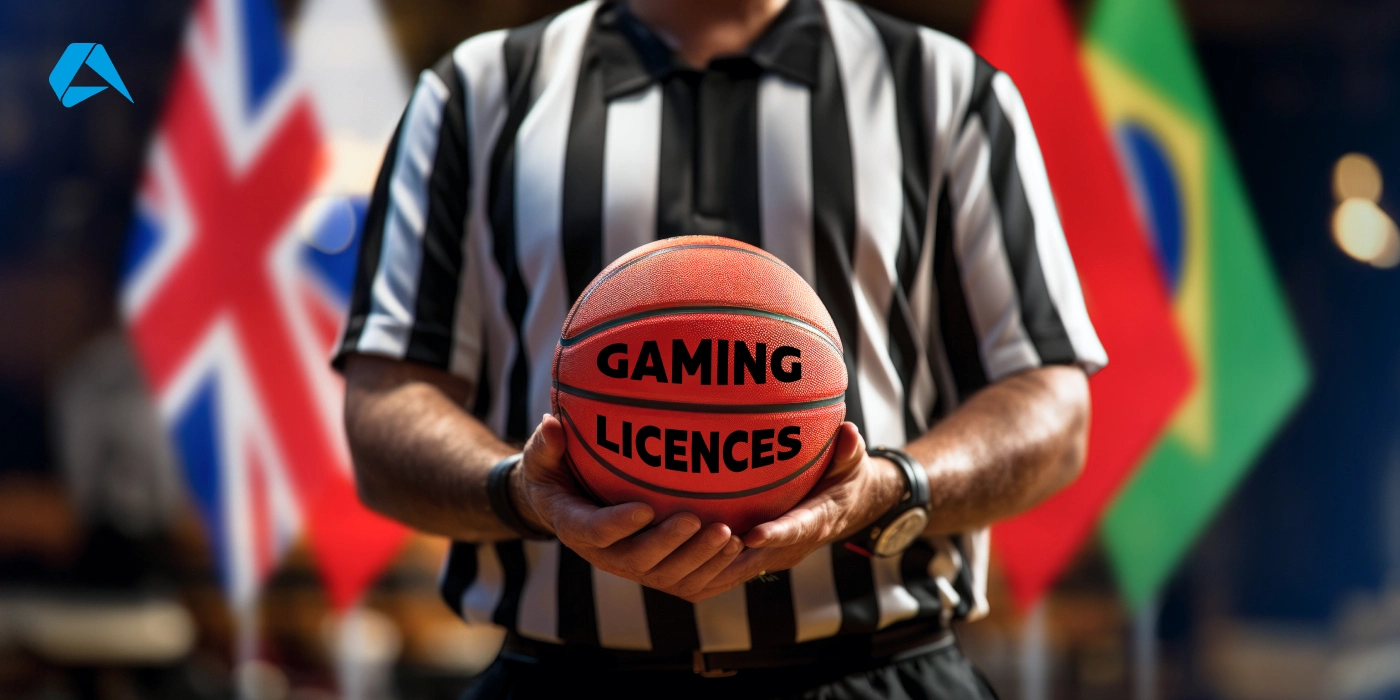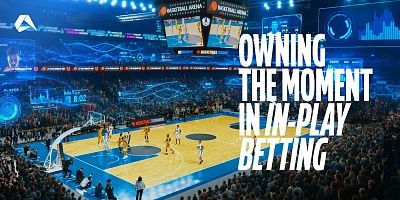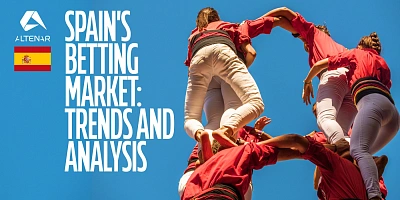Overview Gaming Licences - Which One Should You Get
Navigating the diverse landscape of iGaming licences is crucial for sustained success in the competitive online gambling industry. The article, "Gaming Licences - Which One Should You Get," serves as a comprehensive guide for operators seeking to align their licensing strategy with business goals. It details an extensive list of global regulatory authorities and presents top gaming licences for 2024, such as the highly credible UKGC, the globally recognised MGA, the tax-advantageous Isle of Man GSC, and the rapidly accessible Curacao eGaming licence, among others.
An iGaming licence is essential for various businesses, including online gambling operators, game developers, software providers, and payment gateway providers, ensuring legal operation. Holding a licence provides significant advantages like access to wider markets, increased player trust due to assured fair play and transparency, and enhanced credibility with partners. Operators must consider factors such as market access, reputation, costs, and tax implications when choosing a licence. The article also outlines the rigorous seven-step process for obtaining a licence, covering research, documentation, technical audits, and ongoing compliance, which are vital for long-term success.
Given the many options available, choosing a gaming license can be challenging for new and existing operators. It’s understandable. Holding the correct license, after all, is integral to sustained success in this highly competitive industry.
This article presents an overview of the licensing landscape to help iGaming professionals choose licenses that best align with their business goals and strategy.
Disclaimer
This information is not intended to be legal advice and is solely extracted from open sources. It should not be relied upon as a substitute for professional legal advice, and Altenar does not accept any liability in relation to its use.
Before starting any license application, operators are strongly advised to consult with regional regulators and qualified legal professionals. Regulatory frameworks vary widely across jurisdictions, and local expertise is essential to ensure that all legal, technical, and procedural requirements are properly addressed from the outset.
Global Regulatory Authorities
Here is an extensive list of worldwide regulatory authorities:
Alderney - Alderney Gambling Control Commission (AGCC)
Anjouan Island - Anjouan Betting and Gaming Board (ABGB)
Antigua and Barbuda - Financial Services Regulatory Commission
Argentina - Provincial Institutes of Lottery and Casinos
Australia - State and Territory Gambling Commissions
Austria - Directorate General for Gaming and Law Enforcement
Belarus - Ministry of Taxes and Levies
Belgium - Belgian Gaming Commission
Bhutan - Department of Trade and Economic Affairs in Bhutan
Brazil - Secretariat of Prizes and Bets (SPA)
Brunei - Brunei Economic Development Board
Bulgaria - National Revenue Agency of Bulgaria
Cambodia - Ministry of Economy and Finance of Cambodia
Canada - Controlled by Independent states
Chile - Superintendence of Casinos and Gambling
Colombia - Colombia Coljuegos
Costa Rica - Ministry of Economy, Industry, Commerce of Costa Rica
Croatia - Ministry of Finance of the Republic of Croatia
Curaçao - Curaçao Gaming Authority (CGA)
Cyprus - National Betting Authority of Cyprus (NBA)
Czech Republic - Ministry of Finance of the Czech Republic
Denmark - Danish Gambling Authority
Ecuador - National Service of Gambling Control and Regulation
Estonia - Estonian Tax and Customs Board
Finland - Finland National Police Board
France - The National Gambling Authority of France (ANJ)
Georgia - Georgia Revenue Service of the Ministry of Finance
Germany - Gemeinsame Glücksspielbehörde der Länder (GGL)
Gibraltar - Gibraltar Gambling Commission (GGC)
Greece - Hellenic Gambling Commission
Hungary - Supervisory Authority for Regulatory Affairs
Ireland - Gambling Regulatory Authority of Ireland
Isle of Man - Gambling Supervision Commission (GSC)
Italy - Agenzia delle Dogane e dei Monopoli (AMD)
Japan - Casino Regulatory Commission
Jersey - Jersey Gambling Commission
Kahnawake Autonomous Territory - Kahnawake Gaming Commission
Kazakhstan - Ministry of Culture and Sports of Kazakhstan
Kenya - Betting Control and Licensing Board Kenya
Kyrgyzstan - State Tax Service of the Kyrgyz Republic
Laos- Ministry of Planning and Investment
Latvia - Lotteries and Gambling Supervisory Inspection (IAUI)
Lithuania - Gaming Control Authority
Luxembourg - Luxembourg Ministry of Justice (Lotteries)
Macau - Gaming Inspection and Coordination Bureau (DICJ)
North Macedonia - Games of Chance Administration
Malta - Malta Gambling Authority (MGA)
Mexico - Mexican Gaming Commission
Moldova - Public Services Agency
Montenegro - Montenegro Ministry of Finance
Myanmar - Myanmar Investment Commission
Nepal - Ministry of Culture, Tourism, and Civil Aviation of Nepal
Netherlands - Kansspelautoriteit (KSA)
New Zealand - New Zealand Department of Internal Affairs
Nigeria - National Lottery Regulatory Commission of Nigeria
Norway - Norwegian Gaming and Foundation Authority
Panamá - Junta de Control de Juegos
Paraguay - National Committee of Games of Chance (CONAJZAR)
Peru - Peru General Directorate of Casino Games and Slot Machines
Philippines - Philippine Amusement and Gaming Corporation (PAGCOR)
Poland - Polish Ministry of Finance
Portugal - Portuguese Gaming Regulation and Inspection Service (SRIJ)
Romania - National Gambling Office of Romania (ONJN)
Russia - No Central Authority
Serbia - Serbian Games of Chance Administration
Singapore - Gambling Regulatory Authority of Singapore
Slovakia - Gambling Regulatory Authority of Slovakia
Slovenia - Slovenia Office for Gaming Supervision
South Africa - National Gambling Board
South Korea - National Gambling Control Commission South Korea
Spain - Dirección General de Ordenación del Juego (DGOJ)
Sweden - Swedish Gambling Authority (Spelinspektionen)
Switzerland - Swiss Gambling Supervisory Authority (GESPA)
Thailand - No central authority
Turkey - No Central Authority
Ukraine - Commission for Regulation of Gambling and Lotteries (KRAIL)
United Kingdom - United Kingdom Gambling Commission (UKGC)
Uruguay - Dirección General de Casinos Uruguay
USA - Regulated by Independent States
Vietnam - Ministry of Finance Of Vietnam
Yemen - No Legal Framework exists
Top Gaming Licenses For Operators in 2025
Here's our selection of the most popular gaming licenses for operators seeking to make an impact in 2025.
United Kingdom (UKGC) Gambling License
The UKGC license is considered the benchmark standard in iGaming credibility, with its rigorous regulatory oversight and robust compliance policies. Geographically, it grants access to a vast and mature UK gambling market, gaining popularity through its prestigious reputation and ability to inspire bettors' trust and confidence.
This license is most suitable for operators aiming for a strong foothold in the UK market, with a strategy for long-term stability over rapid expansion or lower operational costs.
Malta (MGA) Gaming License
The highly coveted MGA license has received global recognition for its proactive approach to iGaming regulation and favorable tax structure. It offers operators access to various international markets, making it a good choice for those seeking a strong European presence while benefiting from an internationally respected regulatory body.
This license is most suitable for operators who prioritize a balance of market reach, credibility, and a stable regulatory environment that fosters growth and trust.
Isle of Man (GSC) Gambling License
The Isle of Man Gambling Supervision Commission (GSC) license is highly regarded within the iGaming industry. It offers extensive geographical and demographic reach, allowing operators to target a global audience. The Isle of Man's appeal stems from its strong regulatory oversight, low corporate taxes, and a favorable tax structure on gambling profits.
This license suits forward-thinking operators seeking a prestigious license to expand globally while enjoying significant tax advantages.
Curaçao Gaming License (CGA)
The Curacao Gaming Authority license is a popular choice among iGaming operators. It offers a broad geographical reach to various international markets, and its straightforward licensing process, attractive tax incentives, and absence of stringent regulatory requirements make it ideal for operators seeking rapid market entry.
Therefore, the CGA license is best suited to start-ups and operators seeking to reach a global audience quickly in multiple jurisdictions.
Alderney Gambling License (AGCC)
The Alderney Gambling Control Commission (AGCC) license is known for its strong focus on player protection and technical neutrality. It is an internationally trusted license respected by players and partners worldwide. The license can be tailored to the operator's unique needs while allowing them to use technology that best suits their business model.
This license is perfect for operators seeking top-tier international recognition for integrity and fairness combined with a more flexible and adaptable licensing process.
Gibraltar Gambling License (GGC)
The Gibraltar Gambling Authority (GGC) is one of the few jurisdictions with a regulatory framework tailored explicitly to remote gaming. This ensures that operators are up to date with the latest trends. Licensees can engage with regulators while enjoying access to European markets, competitive tax rates, and no VAT.
This license is ideally suited for established iGaming brands seeking to reinforce their market position and enhance financial stability.
Kahnawake Gaming License
The Kahnawake Gaming License, issued by the Kahnawake Gaming Commission in Quebec, Canada, is a top choice for iGaming operators seeking worldwide access. It offers international recognition, a streamlined licensing process, cost-effectiveness, and a robust regulatory framework focusing on fairness and player protection.
This license is particularly well-suited for mid-sized operators seeking a strategic combination of operational flexibility, global market access, and cost efficiencies.
Gaming Control Anjouan
Issued by the Anjouan Betting and Gaming Board, this license has rapidly gained traction as a viable alternative for operators seeking a low-cost entry to legal gaming. Its most distinctive advantage is its straightforward application process, which accelerates market entry without excessive bureaucracy. Operators benefit from competitive fees, operational flexibility, and access to global markets without complex compliance restrictions.
This license is particularly well-suited for emerging iGaming brands and start-ups looking for cost-effective regulatory approval while maintaining international credibility.
Brazilian SPS Betting License (SPA)
Brazil’s newly authorized gaming license, issued by the Secretariat of Prizes and Bets (SPA) of the Ministry of Finance, grants full legal access to Brazil’s regulated betting market. Its defining feature is government-backed legitimacy, providing a stable framework for operations in one of the world’s fastest-growing gaming industries. Operators benefit from a rapidly expanding player base and the credibility needed to form local partnerships and payment solutions.
This license best suits established brands with the infrastructure and resources to meet Brazil’s comprehensive compliance requirements and scale effectively across Latin America.
Gambling Licenses in the USA
The legal framework for online gambling in the US is complex. While a handful of states have fully embraced online sports betting and casino games, many have some or no legal online gambling possibilities at all.
However, this is all set to change now that states can create their own gambling laws (PASPA). Many are now lifting restrictions on online gambling activities or preparing to legalize at least some forms of online gambling and capitalize on its growing popularity.
Here are the current US states where online gambling (both online sports betting and casino) is legal in 2025 and their respective licensing division:
Connecticut: Connecticut Gaming Division (DCP)
Delaware: Delaware Lottery Office
Michigan: Michigan Gaming Control Board (MGCB)
New Jersey: New Jersey Division of Gaming Enforcement (NJDGE)
Pennsylvania: Pennsylvania Gaming Control Board (PGCB)
West Virginia: West Virginia Lottery Commission
Learn more about the States where online gambling is legal in the USA in our comprehensive guide, which breaks down the gambling activities permitted in each state.
Gambling Licenses in Canada
Similar to the situation in the USA, gambling in Canada is regulated at the provincial level, with each of the ten provinces responsible for setting and enforcing its own gambling laws. These provinces each take a distinct approach. In addition, three northern territories have separate frameworks and more limited gambling operations, often administered in coordination with federal or territorial authorities.
Here is a list of regulators for each province and territory:
PROVINCES
Alberta: Alberta Gaming, Liquor, and Cannabis Commission
British Columbia: British Columbia Lottery Corporation (BCLC)
Manitoba: Manitoba Liquor and Lotteries Corporation
New Brunswick: Gaming, Liquor and Security Licensing Branch
Newfoundland and Labrador: Consumer Affairs Division (DGaS)
Nova Scotia: The Alcohol, Gaming, Fuel and Tobacco Division
Ontario: Alcohol and Gaming Commission of Ontario (AGCO)
Prince Edward Island: Prince Edward Island Lotteries Commission
Quebec: The Quebec Alcohol, Racing and Gaming Commission
Saskatchewan: Saskatchewan Liquor and Gaming Authority
TERRITORIES
Northwest Territories: Department of Municipal and Community Affairs
Nunavut: The Nunavut Liquor and Cannabis Commission
Yukon: The Yukon Lottery Commission
Ontario’s Two-Tier Licensing Model for Online Gambling
Gambling is regulated by the Alcohol and Gaming Commission of Ontario (AGCO) and operated online through iGaming Ontario (iGO) in Ontario. To legally offer online gambling in the province, operators must complete the dual process of registering with AGCO and signing a commercial operating agreement with iGO and meet all regulatory requirements, including responsible gambling measures, data reporting, and technical compliance.
Operators do not offer gambling directly to consumers under their own license. Instead, they provide services on behalf of iGO, with Ontario residents playing on sites operated under the iGO framework. This structure enables legal iGaming while maintaining government oversight and public benefit through revenue-sharing models.
Altenar is fully licensed to operate under this framework, ensuring compliance with all applicable Ontario regulations.
Gambling Licenses and the Regulatory Landscape
The international iGaming regulatory and licensing environment is intricate, with diverse requirements, processes and oversight. Still, at its core, all share common commitments that contribute to a safe and fair gaming environment for bettors.
Official governing channels typically achieve these objectives by implementing player protection policies, promoting responsible gambling, and preventing money laundering (AML) activities.
Types of Gaming License in 2025
Governing bodies worldwide offer multiple gaming licenses designed to cover specific land-based and online gambling activities. For example, a casino license covers a range of games, such as slots and table games, while a sports betting license focuses on wagering on the outcomes of sporting events.
The requirements, processes, and costs of obtaining a license from a licensing authority can vary significantly across jurisdictions, often influenced by local laws, the type of gambling operation applying for a license, and the targeted market.
Who Needs an iGaming License?
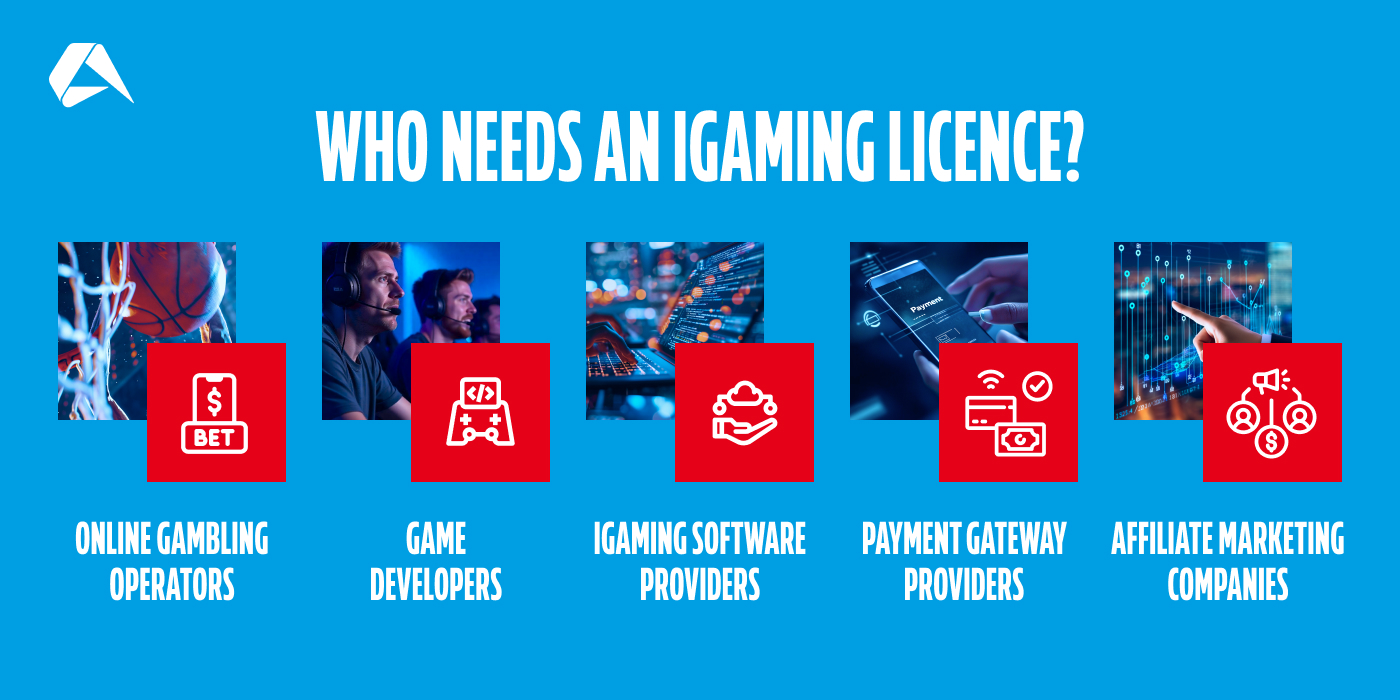
Many businesses that want to offer gambling products and services to the general public within a jurisdiction will need a license to operate legally. It includes:
Online gambling operators
A gambling operator is a company that interacts directly with the general public online and offline to provide opportunities to wager on sports and games. It encompasses online casinos, sportsbook operators, lottery and bingo providers, and poker platforms.
Game developers
Gaming companies, often referred to as casino game developers, create software that powers online casino games, such as blackjack, virtual games, scratch cards, and instant bingo. NetEnt, Playtech, and Microgaming are three examples of trusted developers that create quality games with fair random number generators (RNGs) and robust security.
iGaming Software Providers
iGaming software providers supply the products and services that connect game developers with operators. Prominent companies like Altenar offer flexible solutions tailored to specific markets and audiences to help companies succeed.
Payment Gateway Providers
Payment providers facilitate financial transactions between iGaming operators and bettors. Because these interactions involve gambling activities, payment providers must be licensed to comply with legal and regulatory standards, especially those related to fraud prevention and money laundering.
Affiliate Marketing Companies
Affiliate marketing companies promote and market gambling services on behalf of gambling operators. Depending on jurisdictional regulations, affiliate marketers may sometimes need a gaming license to meet advertising and marketing guidelines for their target market.
Advantages of Having a Gaming License
A gaming license is essential for operators who want to comply with the law in their markets. It also comes with many advantages.
First and foremost, license holders have access to a wider market since many jurisdictions are only accessible with the appropriate license. Serious bettors and online casino players also understand that licensed operators offer certain player protections as standard. A license assures platform users that the operator is adhering to high standards of fair play and transparency, which boosts player trust. In turn, this helps to attract and retain customers.
The credibility of having a gaming license assures reputable third-party providers and stakeholders that an operator is working under the industry's best practices. Compliance with licensing requirements helps aspiring operators attract the services of premium software providers in the industry, enhancing the overall quality and security of the platform.
What License Should You Choose?
Choosing the most suitable license for your iGaming platform sets a solid foundation for entry, expansion, and sustained success. With this in mind, operators should align their licensing strategy with their target market, budget, and scope of their operations.
Market access & growth
What is the license's geographical and demographic reach? Does it encompass your target market, and what is the growth potential?
Licensing authority reputation
How will the license's credibility and prestige impact business reputation and player trust? Is it attractive to potential players and partners?
Cost considerations
Do application fees, annual licensing fees, and related running costs fall within budget and align with financial planning?
Tax implications
How do ongoing tax liabilities affect profitability and financial planning? Is it fixed or percentage-based, and are there any tax benefits or incentives?
Regulatory requirements
Can the business comply with and meet jurisdictional regulations, standards, and compliance requirements within the license's regulatory framework?
Time frame
Does the approval process meet the market entry timeline? What are the financial consequences if it does not?
Technical and operational standards
Can the business comply with and sustain the standards required?
Ongoing compliance
What are the ongoing reporting, auditing, inspection, and monitoring requirements?
Support and resources
What support services and resources does the licensing authority offer to help with compliance and operational success?
Non-compliance
What are the pitfalls of non-compliance? Moreover, what is the level of exposure to fines, suspension, or the possibility of criminal charges?
The Cost of Obtaining and Maintaining a Gambling License
Obtaining a gambling license in 2025 involves significant financial considerations, with costs varying widely depending on the jurisdiction and the type of operator it attracts. At one end of the spectrum, a Gambling license in Brazil demands a substantial investment of BRL 30 million (Approx €5.0 / $5.25 million), making it a viable option for well-established operators seeking access to a tightly regulated South American market.
In contrast, a Curaçao license, historically known for its lower fees and streamlined application process, appeals to emerging platforms looking for a cost-effective entry into international markets.
Beyond these upfront costs, operators must account for ongoing renewal fees and taxation, which can also vary significantly. Spain, for instance, applies a 20% Gross Gaming Revenue (GGR) tax, with potential reductions for tax-resident operators in select autonomous cities. Jurisdictions like Malta, on the other hand, offer a significantly lower GGR tax, starting at just 5%, making it an attractive option for operators prioritizing profitability while maintaining wide access to European markets.
Hidden expenses, such as compliance audits, technical certifications, and local representation, add another layer of financial commitment. However, securing a well-regarded license offers long-term advantages, from increased credibility and regulatory stability to broader market access and greater player trust, making it an essential investment for sustainable growth.
Steps for Obtaining a Gaming License
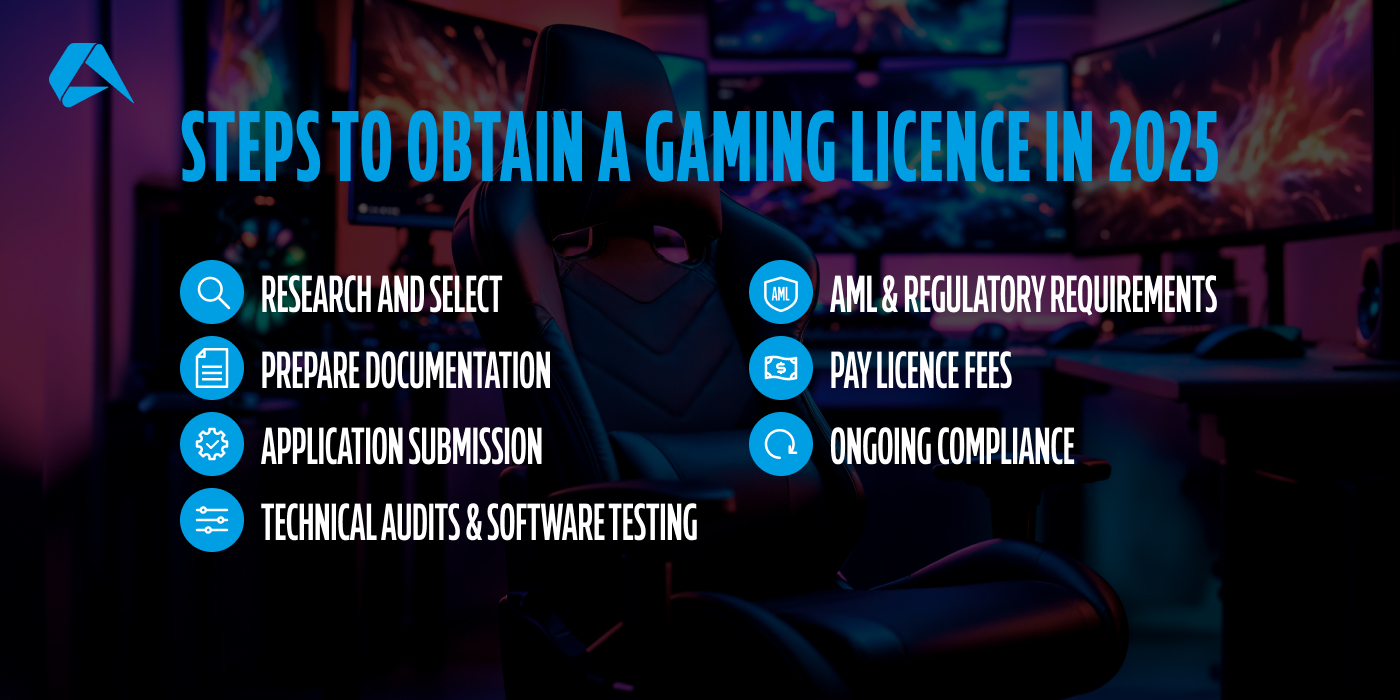
The licensing process differs significantly across jurisdictions, with each regulator applying its own rules, eligibility criteria, and documentation standards. In some cases, such as in Anjouan, operators must engage directly with regulatory authorities to define licensing terms in collaboration with the agency.
While the specific steps vary, the following outline reflects common considerations that may form part of a license application. Operators are strongly advised to consult local regulators or legal advisors to confirm the exact process in each jurisdiction:
Here are the basic steps to obtaining a gaming license for operators in 2025:
Step 1: Research and Select
Being well-informed facilitates a smoother process and is instrumental for long-term success. However, identifying the optimal license for your iGaming business can be time-consuming, with many factors to consider. Before making a commitment, it’s advisable to consult with legal iGaming experts in the countries in which you want to operate.
Step 2: Prepare Documentation
Applicants must compile an extensive array of documentation, including, but not limited to, business plans, financial records, software details, and information on directors and key personnel to assess operational security and integrity.
Step 3: Application Submission
Once prepared, applicants must submit all required documents to the regulatory body they are applying, which will then assess suitability.
Step 4: Technical Audits and Software Testing
Operators applying for a license must also have their gaming software tested by independent auditors to ensure fairness, security, and compliance with the technical standards demanded by the licensing body.
Step 5: AML Compliance and Regulatory Requirements
Operators applying for a gaming license must also adhere to the regulatory body's standards for anti-money laundering, responsible gaming, and player protection policies.
Step 6: Pay the License Fee
Applicants must typically pay a fee before a license is granted after satisfying all requirements and receiving regulatory approval. First-year and annual license costs (if applicable) can be significant and should be an important consideration in the research and selection process.
Step 7: Ongoing Compliance Commitments
Holding an iGaming license requires continuous adherence to regulatory standards, which will require regular inspections, audits, financial reporting, and adherence to changing compliance standards, which can also come with an annual cost.
Final Thoughts
Gambling regulations and licensing requirements are constantly evolving, and smaller brands often lack the in-house resources to keep up. For those looking to move quickly, Altenar’s white-label iGaming solution offers a faster route to market, built on a licensed framework with integrated compliance features tailored to your target jurisdiction.
While operators remain responsible for meeting their own legal obligations, our infrastructure, combined with operating under Altenar’s licensing umbrella, can simplify the early stages and support a compliant launch, giving you more time to focus on building your brand.
Reach out to our team today to see how quickly you can get started.
Disclaimer
This information is not intended to be legal advice and is solely extracted from open sources. It should not be relied upon as a substitute for professional legal advice, and Altenar does not accept any liability in relation to its use.
Before starting any license application, operators are strongly advised to consult with regional regulators and qualified legal professionals. Regulatory frameworks vary widely across jurisdictions, and local expertise is essential to ensure that all legal, technical, and procedural requirements are properly addressed from the outset.
